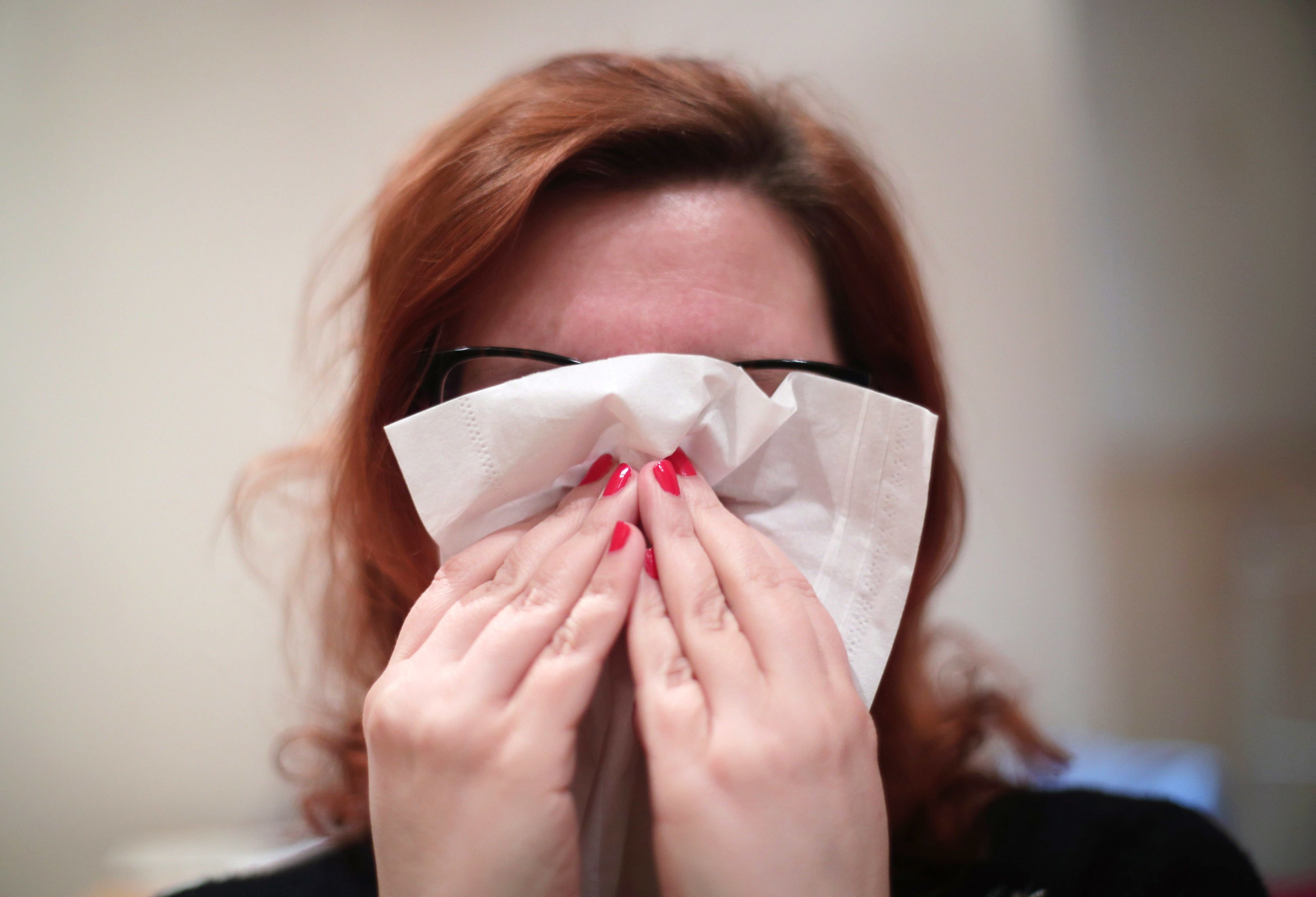Health leaders urged to prepare ‘agile response’ for impending flu season
Global health officials are still unsure what the impact of the forthcoming flu season will be.

Your support helps us to tell the story
This election is still a dead heat, according to most polls. In a fight with such wafer-thin margins, we need reporters on the ground talking to the people Trump and Harris are courting. Your support allows us to keep sending journalists to the story.
The Independent is trusted by 27 million Americans from across the entire political spectrum every month. Unlike many other quality news outlets, we choose not to lock you out of our reporting and analysis with paywalls. But quality journalism must still be paid for.
Help us keep bring these critical stories to light. Your support makes all the difference.
Health leaders need to prepare an “agile response” to the impending flu season, global health officials have said.
It has been suggested the flu season may be worse than the previous two years, when people were still largely adopting preventative measures to avoid Covid-19 and social distancing and mask wearing may have kept many flu cases at bay.
The European arm of the World Health Organisation (WHO) said it is too early to predict whether the UK could face a bad flu season but said health systems need to be ready.
What we do know is that it's likely that the preventive measures that have really kept seasonal flu at bay won't be in place in the same way that they were in 2020 and 2021. So there will likely be an interplay between the different viruses
It also predicted a “surge” in Covid-19 cases as it urged at-risk groups to ensure they have had a second booster shot.
“With autumn and winter approaching, we anticipate a surge in (Covid-19) cases – with or without a resurgence of seasonal influenza in Europe,” said WHO’s regional director for Europe, Dr Hans Kluge.
He added: “People stabilised their lives without actually stabilising the pandemic.”
Asked whether the southern hemisphere’s flu season could predict the UK and Europe’s impending flu season, Dr Catherine Smallwood, WHO Europe’s senior emergency officer, told a press briefing: “We can’t speak with any certainty because each region and each country has its own specificities, but we have looked quite closely at the flu season in the southern hemisphere.
“Looking at countries such as Australia, where they saw quite early and a sharp increase in influenza in the season that did contribute some pressures, also in Latin America, we saw some pressures on health systems.”
She added: “But we don’t know what’s going to come.
“What we do know is that it’s likely that the preventive measures that have really kept seasonal flu at bay won’t be in place in the same way that they were in 2020 and 2021.
“So there will likely be an interplay between the different viruses.
“It may not be a typical flu season, we might see an atypical – it might come early and might come (for) a shorter period, it might come later on.
“So we need to be really agile in our response and be ready to respond to any changes in the virus circulation.”
In the UK, many people invited for a Covid booster jab – those at highest risk of the virus and health and care workers – will also likely be offered a flu jab.
Officials hope many will be offered both jabs at once.
Dr Smallwood added: “What we’re expecting to see in the autumn and winter periods coming up in the European region is one or more waves of increased Sars-CoV-2 (the virus which causes Covid-19) activity – with or without the presence of additional waves of other respiratory viruses such as influenza.
“But not only influenza, we’ve seen throughout the past couple of years that other viruses have also taken advantage of the changes in the epidemiology in the region – we’ve seen that with RSV, for example, as well.”
Meanwhile, WHO officials said polio detected in UK sewage, and a case in the US, should act as a “wake up call for us all”.
British officials have said previously that polio detected in sewage in Greater London was genetically linked to a confirmed case in the US.
Dr Kluge said: “As we look forward to celebrating the 20th year of polio-free status in the European region, we are reminded that the momentous progress made towards global eradication is very fragile.
“Vaccine-derived polioviruses have been detected in Israel, Tajikistan, Ukraine and the United Kingdom.
“Given our interconnected world, the polio virus detected recently in New York in the US is genetically linked to the viruses detected in Israel and the UK.
“Despite overall high immunisation coverage, the poliovirus has found its way to susceptible individuals in under-vaccinated communities.
“This is a wake-up call for us all. It is our shared responsibility to eradicate polio globally.
“Everyone who is not vaccinated, or whose children have missed their scheduled vaccinations, should seek vaccination as soon as possible.”
WHO officials also said there are early signs the monkeypox outbreak is slowing.
But they stressed the virus can cause “agonising” symptoms as they urged ongoing action to eliminate the virus in Europe.
Subscribe to Independent Premium to bookmark this article
Want to bookmark your favourite articles and stories to read or reference later? Start your Independent Premium subscription today.